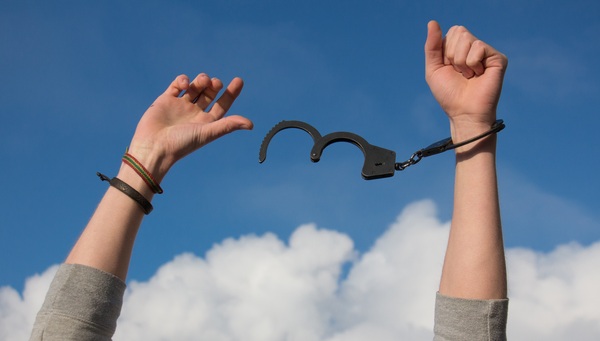
What Are the Signs of Addiction?
Find out more about the signs of addiction. We look at the stages of addiction and how to spot the main signs and symptoms of addiction.
Recognizing an addiction problem
Recognizing that someone has an addiction problem is more complicated than it seems. Most people who are addicted to drugs do not acknowledge that they have a problem.
As a result, their friends, colleagues and family are the first to notice the changes and know something is wrong. While some might get the help they need, others fail to accept help until it is too late!

Therefore, if a friend or a family member has a drug addiction problem, it is your responsibility to try get them help. It is not easy to convince or get someone with an addiction problem help.
What are the stages of addiction?
Addiction begins with occasional use or engagement and develops into a frequent and severe problem.
Just like overcoming an addiction, the length of time it takes to develop an addiction varies from one person to another. Recent studies show that behavioural addictions are just as serious as substance addictions.
Substance addiction refers to the dependence on inhalants, alcohol, medication, drugs or nicotine.
On the other hand, someone can be addicted to sex, shopping, internet use, work, gambling or video games.
Remember, there are serious side effects, whether it is behavioural or substance addiction. Addiction can be categorized into the following levels:
i. Experimentation
This is the first level of addiction, where a person begins substance abuse. When experimenting, a person uses drugs occasionally, depending on the circumstances.
For example, a person may drink alcohol on the weekends only when hanging out with friends.
ii. Regular use
Substance abuse becomes regular because the person has a compulsive urge. Unlike in the experimentation stage, the person starts using drugs regularly, maybe on a daily or weekend basis.
iii. Dependence
During this stage, the addiction has taken over. After regular consumption, the drugs change how the brain works.
The person needs drugs to function normally. The person becomes tolerant, i.e., requires more drugs or a cocktail of drugs to get the desired effects. If the person stops using drugs, withdrawal symptoms become evident.
iv. Addiction
This is the final and most severe stage because the person becomes dependent on drugs entirely.
The urge is unstoppable even if the side effects are apparent. Sometimes, the person opts to use drugs or engage in addictive behaviour instead of working, eating, or even glooming.
5 Signs and Symptoms of Addiction
Physical appearance
Long-term drug abuse results in drastic changes in physical appearance. Most people who abuse drugs lose their appetite and weight and look frail. Sometimes, drug use can cause weight gain in some people.
Therefore, weight loss or gain can be some of the side effects. Other times, the person lack interest in taking care of themselves.
If such drastic changes become apparent, you should be concerned because the person might be using drugs. Here are some of the signs that can indicate someone has an addiction:
• Unexplained injuries
• Sudden weight change
• Increased tolerance to drugs
• Bloodshot eyes
• Bad skin, teeth or nails
• Withdrawal symptoms like sweating, vomiting, shivering or trembling
• Memory loss
• Changes in how a person talks, for example, slurred words
• Sudden mood changes/swings
• Aggressive behaviour
• Depression
Drugs paraphernalia
If someone struggles with drug use, they can try to hide drug paraphernalia. Some of the items you should look out for include the following:
• Rolled-up banknotes
• Syringes
• Cut up straws
• Razor blades and needles
• Burnt spoons
• Matchbox or lighters
• Soiled cotton swabs
It is important to note that not all drugs require something to use them. Other times, a particular thing can relate to drug use.
For example, if someone has several medicine bottles from different doctors, that can signify that he is struggling with prescription drugs. Be on the lookout for other related items to determine if someone has an addiction problem.
Changes in sleeping habits
Did you know that drug use can cause insomnia? Drug use affects a person’s sleeping habits, mainly if they use depressants or stimulants. Some drugs cause hormonal imbalance making it hard for a drug user to fall asleep.
Besides wakefulness, some people tend to sleep during the day or at odd hours because they can’t sleep at regular hours. This might affect their work or school because they cannot cope with the daily schedule.
If someone has an addiction problem, they can get fired due to unreliability or low productivity.
Behavioural changes
Substance abuse disorders are associated with isolation because most users experience fear and shame. It is difficult for someone struggling with drug use to seek help because they fear they will be judged.
Therefore, most people struggling with addictions withdraw from their usual relationships and become secretive. Other times, they spend time with other people using drugs because they can easily relate to them or share drugs.
Some drugs can cause paranoia making it hard for someone struggling with addiction to socialize. Here are some of the signs of sudden behavioural change:
• Spending extended periods isolated in their rooms, home or specific places
• Locking the door when leaving or entering a private space. This helps them feel secure or prevents other people from disturbing them if they intend to use drugs or engage in an addictive behaviour
• Failure to share details of the people or places because they do not want other people to know what they are doing
• Shutting down when asked personal questions
Erratic behaviours
Therefore, erratic behaviours are common because such people are associated with paranoia, euphoria or feelings of absolute power.
It is common for such people to engage in reckless or dangerous actions which could put their lives in danger.
Also, someone trying to hide an addiction may get confrontational or redirect a conversation with aggressive moods or tactics. It is crucial to take necessary precautions when dealing with a person dealing with addiction because they are unpredictable.
If you have identified some addiction signs in someone you love, consider reaching out to an intervention specialist. Working with a specialist helps deal with the addiction problem delicately and professionally.
We hope this article was able to answer your questions about: What are the signs of addiction?
If you want to discover more information about addiction, follow the link to our other pages on this topic.




One Comment
Pingback: